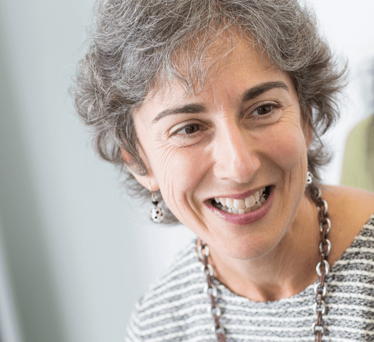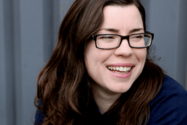Perfecting the Translational Balancing Act
Sitting Down With… Jennifer Grandis, Professor, Department of Otolaryngology – Head and Neck Surgery, Associate Vice Chancellor – Clinical and Translational Research, University of California, San Francisco, USA.

You’ve chosen a dual career as both clinician and researcher – why?
Primarily, I was motivated by the problems that confronted my head and neck cancer patients when I was in residency. I was being taught how to surgically excise their tumors but, more often than not, such patients still died of cancer, and the surgery had profound consequences on their appearance, and their ability to speak, swallow, taste and interact with the world. I found that very unsatisfying, and as it was not a cancer that was commonly studied by biologists, I felt that if I was really going to make a difference to these people’s lives, I needed to learn about cancer biology.
Having a clinical practice as well as doing research has been a really comforting balance because research requires coping with disappointment and rejection, while taking care of people is immediately gratifying.
What drives your research?
I would call it precision medicine. We’re trying to elucidate the most effective targets for each patient or patient subgroup. Historically, we’ve treated cancer as one disease, and either cut it out and/or given radiation or chemotherapy that indiscriminately kills dividing cells. That is not effective in a lot of cases, and particularly in head and neck cancer. Now, we have elucidated the genomic basis of the disease and discovered that instead of being one cancer, it is dozens of different cancers, each slightly different. We’re diving deep into these subtypes to identify the features that are critical for propagation, with a view to developing treatments. The last drug approval by the FDA for head and neck cancer was in 2006, so we really need new treatment options.
You mentioned that research can be very frustrating: how do you cope?
First and foremost, having a sense of humor and not taking myself too seriously! It helps to have a variety of projects percolating so that if one reaches a dead end there are other ways that one can continue to be productive. And I keep my eyes on the prize: translating our work to help people. I spend a lot of time training graduate students, postdoctoral researchers and junior faculty, so it’s my job to model how to deal with rejection and stress.
How do you feel about mentoring the next generation of researchers?
It’s the best part of my job. It’s not about me, it’s about inspiring others, more talented than I, to choose this life. It’s not an easy choice these days. I don’t think I even knew what an NIH funding level was when I was starting out. It just didn’t occur to me that outside factors could influence or curtail my ability to do what I wanted to do. But the combination of the shrinking federal budget in America, the paucity of tenure-track positions and the lack of resources of most academic medical centers means that the life of an independent investigator is no longer held out as a feasible goal for many trainees. I feel it’s my job to show people that a career in research is still possible and rewarding.
Any advice for other mentors?
You have to be a good listener and tailor your mentoring to the needs of the individual. One size does not fit all, so you can’t take a dogmatic approach. It’s also important to understand that mentoring doesn’t just happen – you have to sit down and dedicate the time to it. Finally, you must be able to disentangle your needs from those of the mentee. So often in the world of science, mentors are at the stage in their career where they feel they need to own a project, and claim a certain amount of credit in the form of authorship order, etc. It’s an inherent conflict and I think you have to call it out and figure out a way to solve it.
You started your role as Associate Vice Chancellor at UCSF almost a year ago – how did you approach it?
I feel the administration in an academic medical center should do two things. First, it should get out of the way – reduce the administrative burden and allow investigators to be creative and engage with science. Second, when investigators need support, the university needs to be there to facilitate, particularly when it comes to clinical trials, which no one, however talented, can do alone.
As soon as I started, I had to begin work on renewing our Clinical Translational Science Award – taking on a leadership role, learning about the institution and simultaneously putting a very large grant application together was a real baptism of fire!
What’s next on the agenda?
Now, we need to actually do the work we proposed! One project that I think will be very gratifying is developing a centralized solution for biobanking at UCSF. We have over 150 legacy biobanks at the university and my goal is to provide a coordinated infrastructure so we have a transparent library of bio-specimens. People can choose to share specimens or not, but everybody in the institution - and frankly in the state of California and the world - deserves to know what we’ve collected. That kind of information can really stimulate collaborations and drive research. My own work has always been very dependent on bio-specimen acquisition and I’m convinced that a unified approach will help everybody.

“As Editor of The Translational Scientist, I’m working closely with our audience to create vibrant, engaging content that reflects the hard work and passion that goes into bringing new medicines to market. I got my start in biomedical publishing as a commissioning editor for healthcare journals and have spent my career covering everything from early-stage research to clinical medicine, so I know my way around. And I can’t think of a more interesting, challenging or important area to be working in.”















